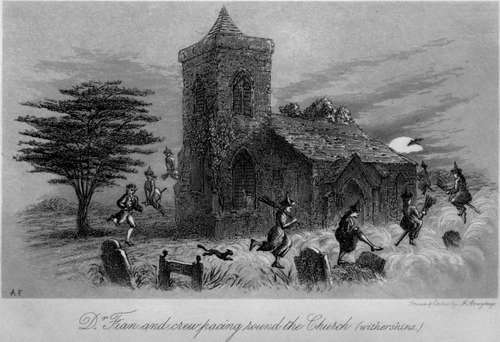Eighth Letter. Part 15
Description
This section is from the book "Letters On Demonology And Witchcraft", by Walter Scott. Also available from Amazon: Letters On Demonology & Witchcraft.
Eighth Letter. Part 15
To this it must be added, that the congregation of Salem compelled Mr. Parvis, in whose family the disturbance had begun, and who, they alleged, was the person by whom it was most fiercely driven on in the commencement, to leave his settlement amongst them. Such of the accused as had confessed the acts of witchcraft imputed to them, generally denied and retracted their confessions, asserting them to have been made under fear of torture, influence of persuasion, or other circumstances exclusive of their free will. Several of the judges and jurors concerned in the sentence of those who were executed, published their penitence for their rashness in convicting these unfortunate persons ; and one of the judges, a man of the most importance in the colony, observed, during the rest of his life, the anniversary of the first execution as a day of solemn fast and humiliation for his own share in the transaction. Even the barbarous Indians were struck with wonder at the infatuation of the English colonists on this occasion, and drew disadvantageous comparisons between them and the French, among whom, as they remarked, " the Great Spirit sends no witches."
The system of witchcraft, as believed in Scotland, must next claim our attention, as it is different in some respects from that of England, and subsisted to a later period, and was prosecuted with much more severity.

Dr Fian and cheur pacing sound the Church (withershines) - London: William Teog .
Continue to:
